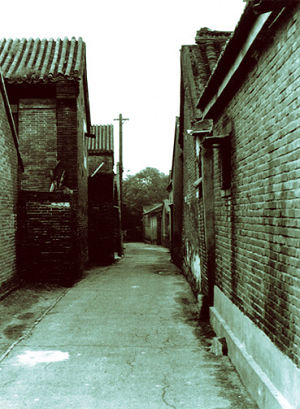Historical Tongzhou hutong set to be demolished

Century-old courtyards located in shantytown areas near the Tongzhou district's Randengfo Tower have been scheduled to be demolished on Thursday to make way for the local government's "New City" campaign.
An official notice announced the demolition was recently posted on a wall in Xita Hutong. The notice offered residents two possible choices: receive compensation for relocating, approximately 15,000 yuan ($2,197) per square meter of their compound, or move to government-built compounds.
Residents said that they are holding out hope for a third way of preserving their compound's historical character, and that four generations have occupied the areas set to be demolished, built over 100 years ago.
A resident surnamed Yang said foreign and Chinese photographers have lately come to take photos of the courtyards, and the photos were exhibited inside the Randengfo Tower.
Another resident surnamed Zhao, in her late 50s, said that the area was at one time an outpost during the era of the Republic of China (1912-1949), and acted as a place of rest for messengers sending letters from Tianjin to Beijing.
"The outer wall of my yard was still part of that outpost, but the rest became a dump," said Zhao, adding that employees from cultural relic protection organizations and district museums have frequently visited her house to take photographs.
According to the Tongzhou district's cultural relic protection administration, not all the courtyards should be considered cultural relics. The wall where the demolition notice was posted in Xita Hutong is currently the only officially recognized cultural relic in the area.
Residents have been told that they can submit an appeal to the demolition company whereupon a decision can be made following a discussion, said staff of the company.
According to the district commission for housing and urban construction, Xita Hutong's demolition period has been set from April 8 to April 27.
Residents have also been told that they are required to vacate their compounds seven days after April 27, or face a 10,000-yuan ($1,465) per-day deduction from potential compensation schemes.
 0
0 







